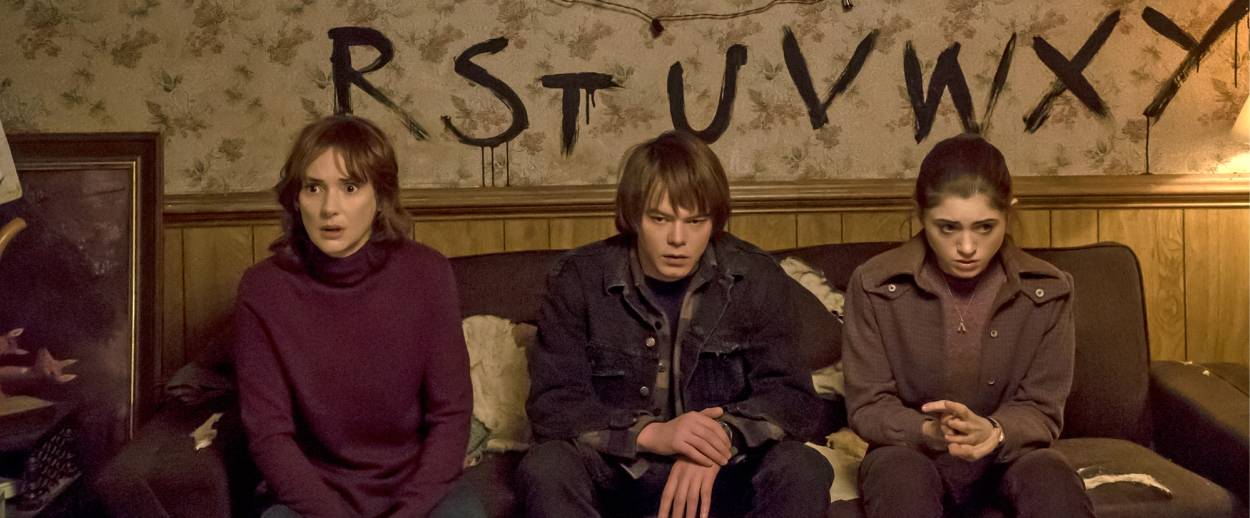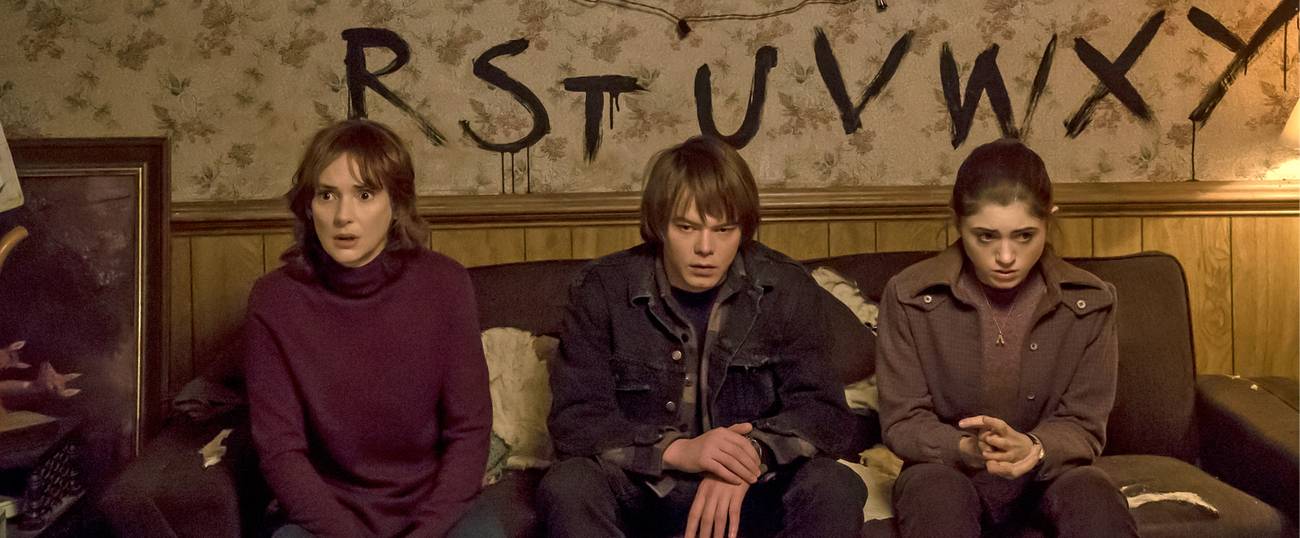‘Stranger Things,’ a Show of Faith
The new Netflix hit is a serious meditation on doubt, belief, and the perils of growing up




Of all the engines that push us through the chilly helplessness that is childhood, none is stranger or stronger than faith. Whether the accidents of our birthplace us in an observant family or an agnostic one, whether we worship weekly or not at all, we all, when young, believe: We believe that justice is possible and life eternal, we believe that fate is pliable and love forever renewed, we believe in our parents no matter their flaws and in the world no matter how cutting. It’s only as we grow older and tired that we begin to consider trading in some portion of our feral hope for something else that’s easier to carry, and we softly sigh as wonder leaves our lungs like an exhalation and quietly commend ourselves for putting away childish things.
Except, of course, we never do: We may no longer believe in our childhood demons, but they, resilient beasts, always believe in us.
That’s not a bad description of Stranger Things, the eight-episode masterwork of television now available on Netflix. Because its particular pleasures derive in large part from the suspension of disbelief—another of childhood’s innate talents—I’ll say little about the plot except that it revolves around a group of children in the 1980s trying to save a friend who may or may not have fallen into a terrifying and monstrous alternate dimension. Homages to the cultural bedrock of the era are paid playfully and often, with entire scenes lovingly harking back to Spielberg and Stephen King and John Carpenter and Star Wars. But mere nostalgia is a cheap drug; Stranger Things offers something more profound, and more profoundly essential—a real meditation on faith and its meaning in modern, skeptical times.
Like all great art, Stranger Things moves us by skillfully conflating the literal and the existential. On the surface, the question of belief presents itself, to the show’s viewers and characters alike, as a straightforward choice: Do you believe that Will Byers, a precocious middle-schooler who mysteriously disappeared one evening while riding his bike home, is dead and gone, or is he alive in some other dimension, trying to communicate through unconventional and hard to decipher media like walkie-talkies and Christmas lights? Will’s mother, the sublime Winona Ryder, believes her son is out there crying out for help. So do his three loyal friends, who take real risks to try and save their buddy. Others are far less certain, and they cite pesky things like the laws of physics or observable facts and chalk up any hope of ever seeing Will alive again to grief, madness, and other understandable emotions. It’s a compelling plotline, but it conceals a deeper and more disquieting discussion, one that anyone professing faith in a largely secular society will immediately and intimately understand. What Will’s mother and friends experience isn’t only the challenge of convincing the rest of the world that they’re right about the fate of one boy; what they’re really up against is explaining what faith is and how it works to people who’ve lost the capacity for transcendence.
To those poor cerebral souls, the world is a small and airless place. With very few exceptions, the show’s adults are all kind, caring, composed, and utterly clueless. They have no patience for talk of monsters, or parallel worlds, or government conspiracies, or any of the fantastic forces that, in reality, emerge from the shadows to snatch their children and disrupt their lives. All they can offer are modernity’s useless tools, from material comforts to psychological chatter. Their children, meanwhile, lead deeper and richer lives. Their faith, like all faith that matters a lick, is never without doubt; in fact, like prepubescent scholars of G.K. Chesterton, the kids intuit this core teaching of the master: that Man must have just enough faith in himself to have adventures, and just enough doubt of himself to enjoy them.
And doubt they do, but—again, in a nod to Chesterton—they always doubt themselves, never the truth. They know their friend is out there, and they continue to pursue him even when the pursuit is dangerous and damaging, even as friends ridicule them, even as parents and teachers advocate muter, more reasonable courses of action. Their main challenge isn’t whether to go on believing, but how to do it, what manner of ritual-like conduct would bring them closest to a plane of consciousness they can’t quite grasp yet but intimately know exists side by side with their own. That has always been the believer’s challenge—and reward: seeing one more layer to reality than the rest of us do.
Few contemporary works of art capture this toil and triumph of faith more subtly and beautifully. This is because contemporary attempts at art, like contemporary attempts at faith, often try—Chesterton, for the third and final time—to fit the vision to the world rather than changing the world to fit the vision. Rather than trying to appear modern and hip to it all—as so many television shows and synagogues and books and churches and films do these days—Stranger Things, from behind its clever veil of nostalgia, offers us a glimpse at a world full of wonder and a shot at another way of being in the world. It spares us neither the unbearable heartbreaks nor the immense possibilities of life lived to the fullest, and wisely counsels us to give our overworked and underwhelming critical faculties a rest and instead let the spirit guide us. Amen to that, and hallelujah to a show that allows us, if only for eight hours, to have faith again like we did when we were kids and monsters were real, and so was our ability to change the world, if only we believed.
***
Like this article? Sign up for our Daily Digest to get Tablet Magazine’s new content in your inbox each morning.
Liel Leibovitz is editor-at-large for Tablet Magazine and a host of its weekly culture podcast Unorthodox and daily Talmud podcast Take One. He is the editor of Zionism: The Tablet Guide.